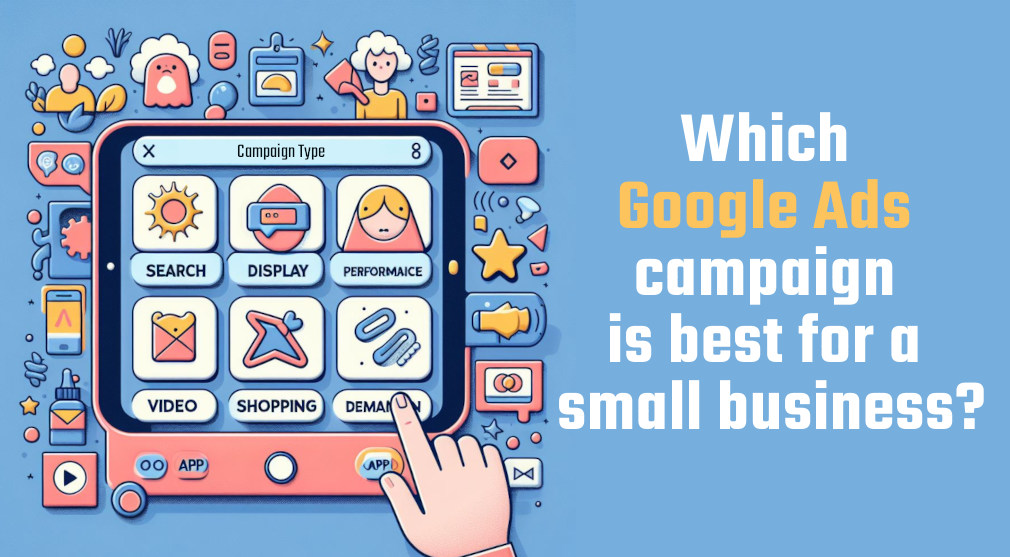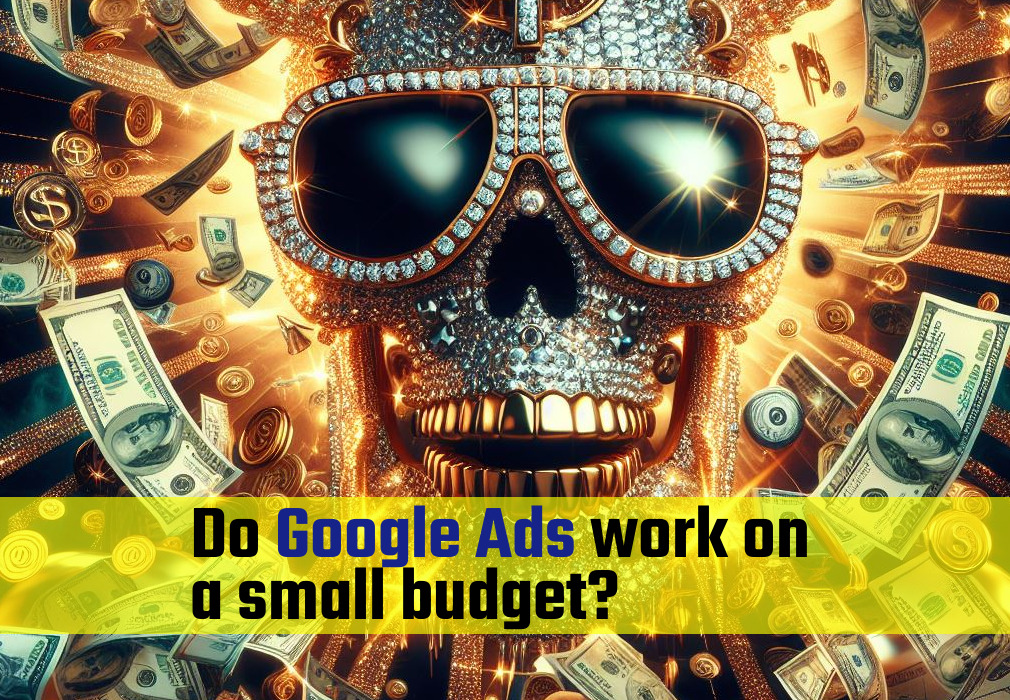Google says that AI-powered ad campaigns like Performance Max are “the future” of Google Ads. But that doesn’t mean Performance Max is a good fit for every business.
In a recent post, we evaluated Performance Max vs. Search to illustrate why Search campaigns are still the best for most small businesses. But in today’s post, we go a step further to explain why small businesses should actively avoid PMAX, except in very specific circumstances.
If you’re considering different campaign options in Google Ads, here are 6 reasons NOT to use Performance Max (and why).
9 times out of 10, I do NOT recommend Performance Max in #GoogleAds for small businesses with limited budgets. 🤓
— Michael Marlin Jr. 🤓 (@mikemarlinjr) April 19, 2024
1) Your Google Ads budget is limited.
If you’re only spending a few hundred dollars a month on Google Ads (or even a few thousand dollars a month), then you want your ad dollars to go as far as possible.
Performance Max is not the answer, in most cases.
That’s because PMax campaigns include Display ads, which will reach people who aren’t actively searching for your keywords.
While it’s true that Google is increasingly good at deciphering users’ intent as they browse the Internet, it’s not an exact science. Performance Max will almost always waste money on some unwanted clicks, even if you’re using aggressive targeting controls.
If you only want to pay for clicks from people who are actively searching for what your business offers, right at that moment, then you should be using a Search campaign instead.
2) You haven’t maxed out your Search budget yet.
Performance Max is best for advertisers who have maxed out their performance on Search and want to reach more people in other channels, even if conversion rates are not as strong in PMax. If there’s still untapped search volume for your keywords, you should not use Performance Max until you’ve maxed out that audience.
One of my clients recently said to me, “I think we should try Performance Max.”
“Absolutely,” I responded, “But may I ask why?”

This client was already running a successful Search search campaign, spending about $1,500 a month on Google Ads for his locksmith company. But there was still plenty of search volume in his local target market to reach more people in his Search campaign. So I was surprised he wanted to move his budget to a campaign that would deliver less results.
As it turns out, he didn’t know how Performance Max worked. He’d simply seen ads from other SEM management agencies talking about helping their clients spend “millions of dollars” with PMax ads.
I’m not sure why spending millions of dollars appealed to my client. (Anybody can spend money on ads. Don’t we want our ads to make money?) But after I explained how Performance Max would take money away from Search and put his ads in other channels, like Gmail, YouTube and the massive Google Display Network, he agreed that PMax wasn’t the right strategy.
Instead, he decided to increase his Search budget. And sure enough, he generated more conversions and sales at approximately the same cost per conversion, on average.
3) Performance Max has lower conversion rates.
Performance Max campaigns typically do not convert as well as Search campaigns (there are some exceptions, of course).
Why?
It boils down to the inherent nature of PMax ads.
- With PMax, your ads can appear in front of people who are not searching for your business at all.
- With Search, your ads only appear when someone is searching for what you offer.
Do both campaigns get clicks? Of course.
But the people who are actively searching for your business are more likely to convert to a call, form submission or sale.
This is why Search campaigns typically deliver far better conversion rates than PMax, unless an advertiser has reached the limit of their audience in Search.
Check out this chart from our friends at Wordstream. It shows the massive difference in conversion rates for Display ads (which PMax relies on heavily) vs. Search ads. Industry-wide, display ads convert at about 0.57% on average, while Search ads convert at about 4.4% — more than 6 times higher!
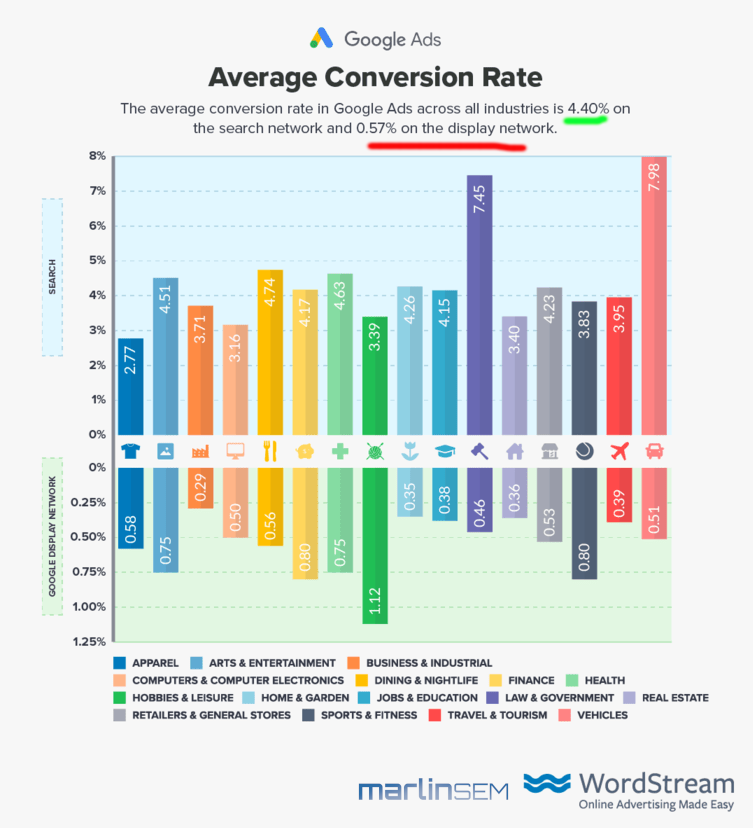
Image courtesy of our friends at WordStream
Does this mean Performance Max is bad?
Of course not. It’s just a different type of campaign. Search and PMax is not an apples-to-apples comparison. They are two different beasts, with distinct goals and advantages.
4) Performance Max doesn’t let you target by keyword.
My clients are often surprised to learn this.
With Performance Max, you don’t enter a bunch of keywords like you do with a Search campaign. Instead, you enter general search themes or other data about your customers or website feed.
Google then uses machine-learning to determine the best ways to reach your target audience, based on the general Search themes or feeds you entered.
You might be asking, “Isn’t that a little too non-specific?”
Yes, it is! At least, for smaller advertisers it is.
The beauty of Search ads is that you can target people’s intent very effectively by keyword phrase. So your ads only appear when users search for the specific words that are related to your business’s products or services.
To be fair, Google’s machine learning is very powerful too. It’s astonishingly good at knowing where to reach users outside of search, and what message to display, based on a constantly growing array of signals.
But if an advertiser’s budget is limited, then they should generally put their ad dollars where it will generate the best response rates: Search.
5) There’s limited control with PMax.
When you run a Performance Max campaign, you largely hand over the reins to Google and its machine-learning technology.
That might be fine for the big advertisers like Amazon who spend millions of dollars per month on Google Ads and want the easiest way to reach a massive audience.
But for most of us, that’s giving up too much control.
To be fair, Performance Max does let you set some exclusions for certain keywords, audiences and placements. But for the most part, once you set up the campaign, Google takes over from there.
Most of my clients spend under $10,000 a month on Google Ads each month, so they want their campaigns to be as tightly controlled and cost-efficient as possible. That’s why I almost always recommend maximizing their Search campaigns before considering PMax (with a few exceptions, of course, such as when a business is focused on brand awareness or reaching specific audiences outside of Google).
6) You only want your ads to appear in Search results.
By now, you’re getting the picture.
Performance Max advertises your business beyond just search results. Your ads can appear in:
- 2+ million websites & apps via the Google Display Network
- YouTube
- Gmail
- Google Discovery
For example, your ad might show up in the middle of someone’s game of Minecraft or Pokémon GO, or on websites that have nothing to do with your business at all.
People will click on your ad, even if they are only vaguely interested in your business. That will cost you money. And if the person exits your site (as most will), that money will go down the drain.
Wouldn’t it be better to spend those ad dollars on clicks from people who are actively searching for what you offer, right at that moment?
If you want your ads to appear only in Search results, then PMax is not for you.

Disadvantages of Performance Max Campaigns
To recap, Performance Max campaigns have several disadvantages, particularly for advertisers with limited budgets. These disadvantages include:
- Lower conversion rates
- Limited control
- Ad placements outside of Search
- Lack of keyword targeting
Again, to be fair, Performance Max does have plenty of advantages, too. But in our experience, PMax works best for advertisers with much larger budgets.
Preemptively Addressing Some Questions
Other PPC agencies would say I’m crazy for suggesting that Performance Max has any disadvantages at all. That’s because they earn a hefty, percentage-based commission on their clients’ ad spend. So they’re incentivized to increase their clients’ budgets as much as possible. And with Pmax, there’s almost no limit to how much you can spend.
Sure, my SEM management packages are incentivized for higher budgets, too.
But since I work mostly with smaller businesses, my priority is helping them get the biggest bang for their ad budget. This helps them see the value of Google Ads and scale their campaigns in accordance with their marketing objectives.
That being said, let me be make a few things clear:
- Does Performance Max get clicks. Yes.
- Does Performance Max convert? Yes.
- Is Performance Max good for reaching audiences outside of Search? Yes.
- Is Performance Max good for large advertising budgets? Yes.
- Is Performance Max good for brand awareness, demand generation, remarketing and other specific marketing objectives? Yes!
All of these things can be true and Performance Max will still not be the best ad campaign for most small businesses.
However, if your business has some flexibility with your budget, sure – go ahead and give PMax a spin. This will enable you to see the results for yourself and determine how it might fit into your sales funnel, outside of your Search campaigns.
Conclusion
Performance Max is a powerful campaign type in Google Ads that lets you reach your audiences beyond the confines of search results. However, there are several reasons that small businesses should not use Performance Max, including: lower conversion rates, limited control and the risk of wasting money on unwanted clicks.
Frequently Asked Questions (FAQ) about Performance Max
If you’re new to Performance Max, or Google Ads in general, here are some answers to common questions that I receive here at MarlinSEM. This information provides a good background for why we advise many small businesses not to use PMax.
1. What is a Performance Max campaign?
In Google Ads, Performance Max is a type of ad campaign that allows advertisers to place their ads across all of Google, as well as external sites. Performance Max ads can appear in Google Search, YouTube, Gmail, Maps and up to 2 million websites and apps as part of the Google Display Network.
2. Which is better: Performance Max or Search campaigns?
In Google Ads, each campaign type has a different objective and different advantages. As such, choosing a campaign type in Google Ads should be based on each advertiser’s unique goals. However, small businesses with limited budgets will generally see better results from a targeted Search campaign.
3. When should you use Performance Max?
Generally speaking, businesses should use Performance Max when they have excess budget to reach their prospective audiences outside of search results and/or when conversion rates are not a top priority.
4. Does Performance Max mean it maximizes your Google Ads performance?
No. The term “Performance Max” is somewhat of a misnomer. Performance Max can help advertisers maximize and scale their ad budgets by reaching audiences outside of Search. It also uses machine-learning to improve your ad performance as more data is collected. However, Performance Max campaigns do not deliver the best overall ad performance, especially in comparison to a more intent-targeted campaign like Search.
Need help? Let’s chat!
Send me your questions, feedback or dreams at mike@marlinsem.com and I’ll be happy to help you identify the best Google Ads strategy for your business. Or, simply request pricing to learn more about our Google Ads management services. (For general campaign info, check out Google’s helpful page about Performance Max.)
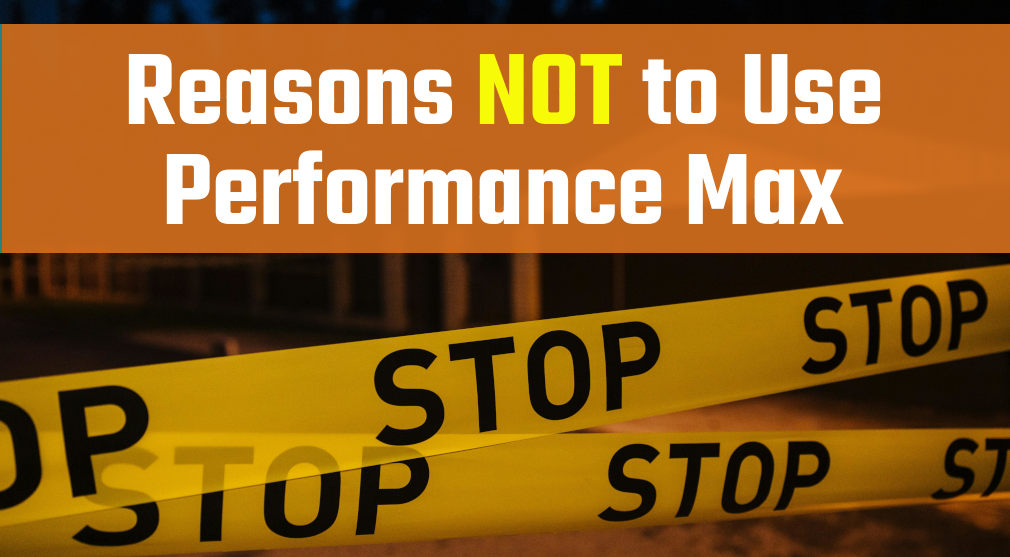
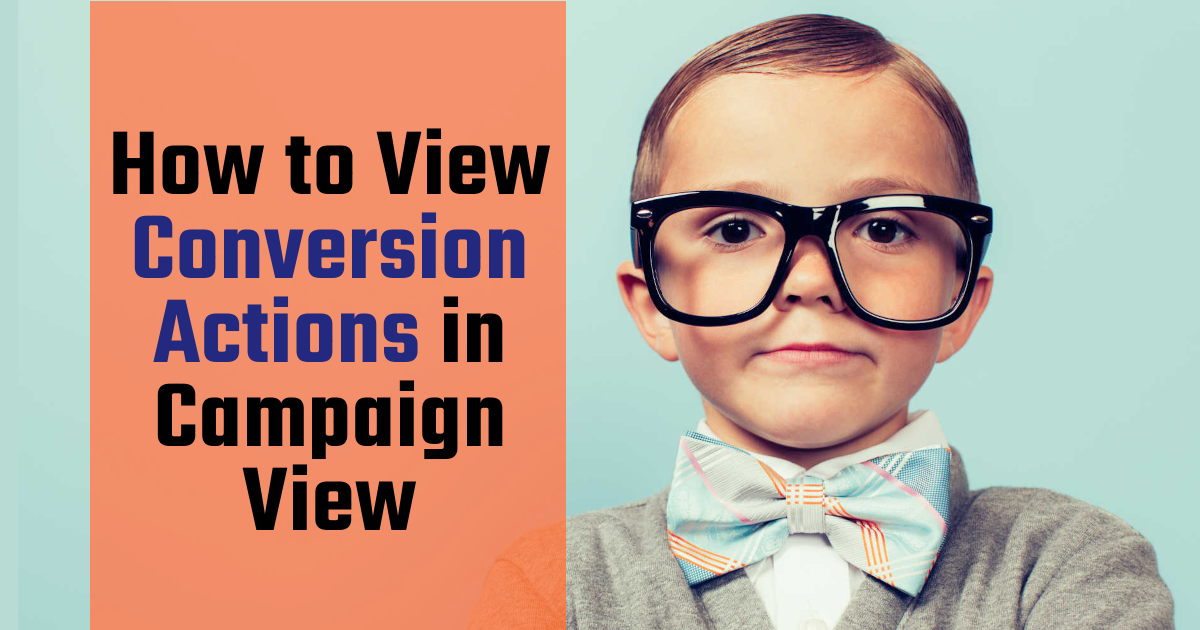
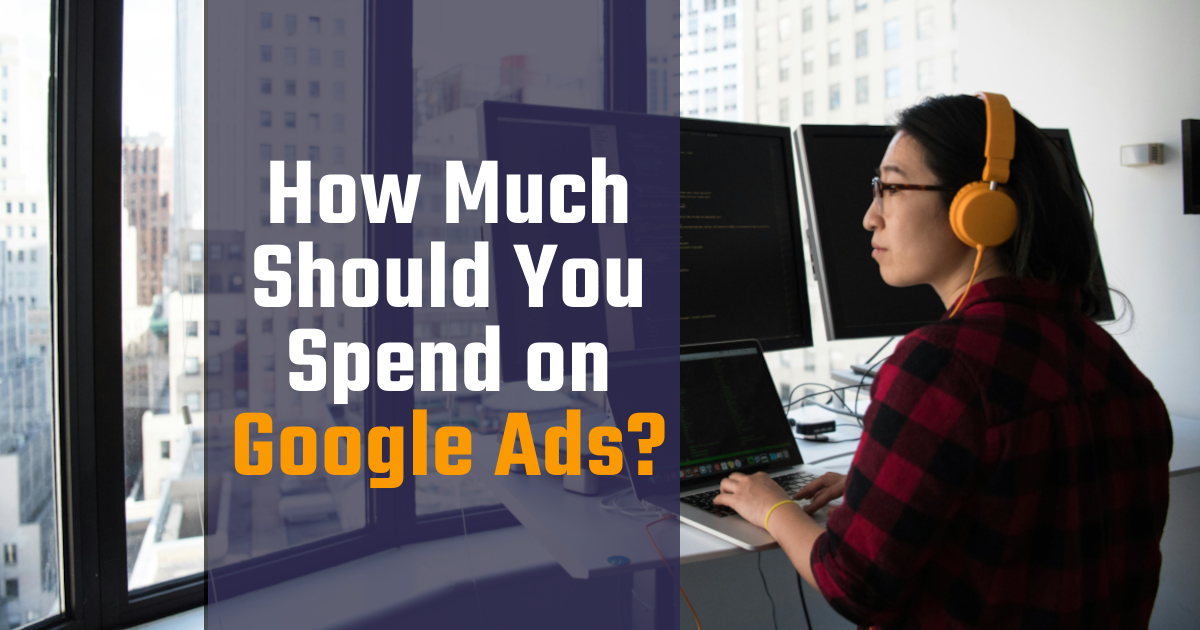

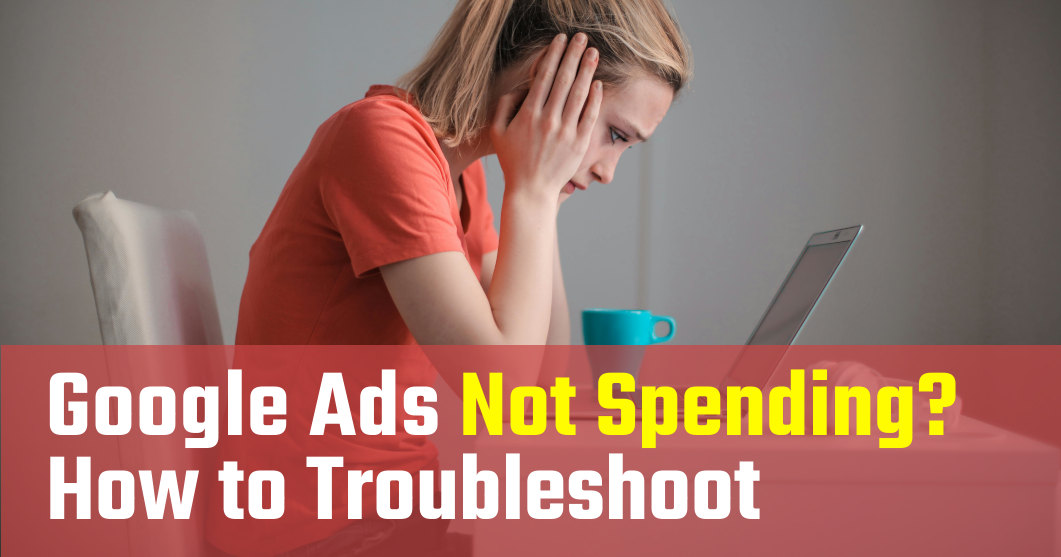
![How to Use Google Ads for Limo Services [Updated 2024]](https://marlinsem.com/wp-content/uploads/2024/01/limo-company-advertising-google-ads-2025.png)
